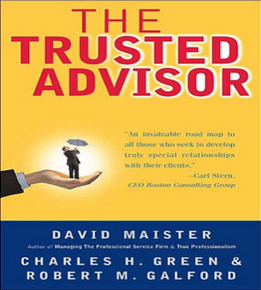When Focus Becomes Tunnel Vision
 Let’s talk about focus.
Let’s talk about focus.
Many respected authors will tell you that focus is essential to achieving success. They call it concentration, determination, single-mindedness, resolve – whatever the word, the message is that by focusing on the outcome you want, you are more likely to make it happen.
And it seems hard to argue that being focused is anything but good. It improves the quality of our work, increases efficiency, and contributes to momentum. Focus can help clarify priorities, improve decision making, and reduce stress.
But when we get too focused, we risk getting tunnel vision.
Tunnel vision arises as a medical condition when someone loses peripheral vision, limiting their sight to only what is directly in front of them.
Metaphorically, it means concentrating completely on achieving a particular aim, without regard for anything or anyone else. It limits our ability to see and hear what is important to others. It is the height of self-interest.
Adam Smith, Competition, and Selling
Blame it on Adam Smith’s The Wealth of Nations. The Scottish moral philosopher and economist famously claimed that by the self-oriented struggling of the butcher and the baker, the “invisible hand” of the market makes itself known by balancing out all for the greater good. Out of individual self-interest grows the maximum collective good.
While Smith has been unfairly characterized as arguing against regulation and in favor of unfettered free markets, there’s no question that his powerful formulation rhymes with competition – individuals seeking their own betterment.
Taken at face value, Smith’s primary hypothesis that the collective good grows as a result of individual self-interest defies logic. The deeper context is that individuals specialize to create income-generating goods and services, and in so specializing will pay others for the goods and services they cannot (or choose not to) create themselves.
If only one person (or company) made each thing anyone needed, there would be no competition. But we have long ago demonstrated that monopolies are an economic danger. So we have an economy that is driven by choice – and, so it follows, by competition.
Selling without Competition
It’s hard for most people to even conceive of selling without that competitive aspect between buyer and seller. Isn’t the whole point to get the sale? Isn’t closing the end of the sales process? If a competitor got the job, wouldn’t that be a loss? And why would you spend time on a “prospect” if the odds looked too low for a sale?
When we think this way, we spend an awful lot of energy. It’s hard work – most of it spent trying to persuade customers to do what we (sellers) want them to do. This is never easy (if you have a teenager and/or a spouse, you know this well).
The competitive approach is the traditional, zero-sum-thinking, buyer vs. seller approach – the age-old dance that gives selling a faint (or not-so-faint) bad name. It is one-sided, seller-driven, selfish. Success, in this approach, is defined only one way: getting the sale.
You have to be hyper-focused – have to have tunnel vision – to sell that way.
Seeing beyond the Tunnel
Going back to Smith’s Wealth of Nations, the fundamental context is that wealth is generated by working with the buyer, not against the buyer. Recognizing what the buyer needs that you can provide. Your interests are 100% aligned, not 59%. If you do business by relentlessly helping your customers do what’s right for them, selling gets remarkably easier.
All you have to do is just change the whole approach to selling. You’re not in the competition game: you’re strictly in the helping game, with a partner called your customer/client.
Once you stop focusing on selling what you have to offer, you can see what your client really needs.
You don’t have to think about what to share and what not to. You don’t have to control others. You don’t have to white-knuckle meetings and phone calls, because there are no bad outcomes. You don’t have to relentlessly screen out unqualified leads. You don’t have to practice “handling objections,” because objections are just invitations to further dialogue.
The “trick” is simple: just do the best you can to help the client. Period. Detach from the outcome. Open the aperture. Go where the client conversation takes you. Your goal is not to get the sale. Your perspective is long-term success, not this transaction. Don’t focus on monthly quotas, just go where your help is most needed. Just help the client.
If you do that, two results become clear:
- You will not get every sale; you may not get this sale; sometimes you don’t deserve to get it, or the goal changes, or it gets postponed – sometimes you may even recommend a competitor;
- In the medium-to-long run, however, you will get more
Selling this way works very well for one fundamental reason: all people (including buyers) prefer to deal with sellers they can trust – those who are honest, forthright, long-term driven, and client-focused. All people (including buyers) prefer not to deal with sellers who are in it for themselves, and constantly in denial about it.
If you give them a choice, they will gladly act on those preferences.
This is where focus is good again: when your concentration is on helping your client, with regard only for what is best for them, you end up with superior results.
You’ll see the light at the end of the tunnel.


 Refer your competitors to your clients in the sales process.
Refer your competitors to your clients in the sales process.